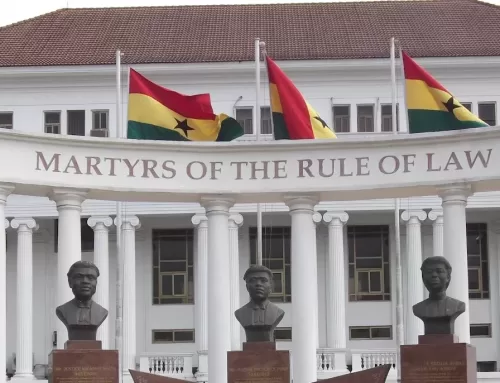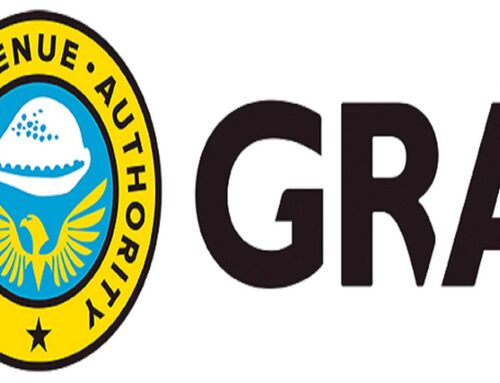Introduction
The tremendous effort of the government to increase the tax net and promote voluntarily tax compliance, there has been a new tax amendment passed by parliament and assented to by the president which are as follows;
- Revenue Administration (Amendment) Act, 2022 (Act 1086),
- The Electronic Transfer Levy (Amendment) Act 2022 (Act 1089), and
- The Value Added Tax, (Amendment) No. 2 Act, 2022 (Act 1087). In this alert, we highlight tax provisions that have been amended and draw the attention of the general public on its compliance for the year 2023. January 2023 #01.2023 Regulatory Alert
- REVENUE ADMINISTRATION
The Revenue Administration (Amendment) Act, 2022 (Act1086), has been passed by Parliament and assented to by the president of the Republic of Ghana. The reason of this new amendment is to provide for the Commissioner-General to establish a monitoring mechanism to determine or verify the actual revenue collected by a taxpayer, to introduce the requirement for a tax clearance certificate, to provide for returns in respect of the realization of an asset or liability and for related matters
Highlight of the key areas of this amendment are below:
Access to physical network node
The new Revenue Administration (Amendment) Act, 2022 gives the Commissioner-General the authority to establish a monitoring mechanism for the purpose of verifying the actual revenue of a taxpayer. This Act requires a person to give the Commissioner-General physical access to the physical network node or infrastructure or system of that person at an equivalent point in the network or infrastructure or system where the system of the taxpayer is connected. Additional penalty has been introduced for refusal by a taxpayer to provide the CommissionerGeneral or the authorised tax officer access to the physical network node. Thus a penalty of 5% of the annual gross revenue of the person in addition to the penalty prescribed in section 78 of the Act.
- ELECTRONIC TRANSFER LEVY (E-Levy)
The Electronic Transfer Levy Act, 2022 (Act 1075) has been amended by the government of Ghana. The object of this amendment is to reduce the levy on electronic transfer to one percent, to provide for the filing of returns and provide for the time for payment, and emphasis on other related matters.
- Reduce the levy on electronic transfer to one percent. The Electronic Transfer Levy Act,2022 (Act 1075) imposes an electronic transfer levy of 1% on electronic transfers, as against the 1.5% formally imposed. Electronic money transfer and digital bank transfer daily threshold of GHS 100 and GHS 20,000 respectively haven’t seen any changes. The daily threshold of the principal enactment remains in force.
- To provide for the filing of returns and provide for the time for payment. A charging entity shall file a return in respect of the levy with the Commissioner-General in matter and at the time and place determined by the Commissioner-General. A charging entity shall pay to the Commissioner-General the Levy that has been charged on electronic transfer within twenty-four hours after charging the amount.
- VALUE ADDED TAX (VAT)
The Value Added Tax Act,2013 (Act 870) has been amended by the government of Ghana. The purpose of this amendment is to adjust the Value Added Tax (VAT) rate, adjust the VAT threshold, review the transitional provisions for the implementation of the electronic Value Added Tax(e-VAT) system, revise the administrative penalties for non-compliance in relation to the electronic Value added Tax and remove the VAT on betting, gambling and other game of chance.
Key highlights in this amendment are;
- Change in VAT standard rate from 12.5% to 15%. The VAT rate which was previously 12.5% is now going to be 15%. This 15% is charged on the value of the taxable supply of goods and services and the value of import. The taxable amount is an inclusion of the 2.5% National Health Insurance Levy, 2.5% of the Ghana Education Trust Fund Levy and the 1% Covid-19 Health Recovery Levy. The increase in the VAT rate from 12.5% to 15% will increase the effective tax and levy rate from 19.25% to 21.9%. Retailers of goods who make taxable supplies above GHS 200,000 but below GHS 500,000 shall pay the Value Added Tax at the flat rate of 3% on the value of the taxable supply.
- Revision of VAT Taxable supplies. The acceptance of a wager or stake in any form of betting or gaming, including lotteries and gaming machines has been removed from the list of activities that constituent taxable supplies for VAT application. The new amendment has also removed betting as supply of services by a business operating a game of chance. There is no more VAT on betting services provided by persons to its customers. There has also been an inclusion of imported textbooks, imported newspapers, architectural plans and similar plans, drawings, scientific and technical works, periodicals, magazines, trade catalogues, price lists, greeting cards, almanacs, calendars, diaries and stationery and other printed matter to the list of taxable activity for VAT application. These supplies do not fall in the VAT exemption bracket as it previously did.
- Failure to comply with the new Certified Invoicing System (E-VAT). Value Added Tax (amendment) Act 2022 (Act 1082) requires a taxable person to issue a tax invoice through a certified invoicing system and ensure that the Certified Invoicing System is integrated into the invoicing system of the C-G. The purpose of the new amendment (Act 1087) is to strengthen the compliance with Act 1082 by providing penalties for non-compliance with the Certified Invoicing System. The Act 1087 has prescribed penalty for VAT registered persons that don’t adhere to the new provisions of Act 1082. Persons who issue a falsified tax invoice or sales receipt or manipulate the proper functioning of the Certified Invoicing System or fail to integrate the Certified Invoicing System into the invoicing system of the Commissioner-General will, in addition to penalty prescribed for failure to issue a tax invoice under the VAT Act, be liable to a penalty of the higher of GHS50,000 or three times the amount of tax involved. The new amendment, Act 1087, has also repealed the provision for sections 13 and 14 of Act 1082 which allowed persons who fail to comply with the Certified Invoicing System to apply for extension. Also, Betting, Gaming (including other games of chance) have been removed from the scope of VAT application. Thus, exempted from VAT. Finally, VAT on imported Text books, newspapers, architectural plans and similar plans, drawings, scientific and technical works, periodicals, magazines, trade catalogue, price lists, greeting cards, almanacs, calendars, diaries and stationer and other printed materials have been reintroduced. VAT is now applicable on importation of books and printed materials.
We summarize the key takeaway on these new provisions below;
Revenue Administration
- This new amendment would protect the Commissioner-General or tax authority against grudges by persons who may prevent tax official from access to information.
- This unrestricted access will yield information needed for the Commissioner-General’s tax assessment.
- Government expects to increase Tax-to-GDP from around 13% to 20% in the year 2023. These amendments have set the tone for a strict and aggressive tax compliance strategies to be adopted by Government to meet this target and generate maximum tax revenue.
E-Levy
- The reduction in the rate from 1.5% to 1% will benefit persons as new income save and invest in other areas.
- Filing of returns by charging entities will help them to pay the correct amount of tax to the Ghana Revenue Authority and authenticate evidence of tax collected and paid back.
VAT
The increase in the VAT rate may result in a general escalation in of goods and services.
- The increase in price on an invoice is 2%. Where Government is unable to educate taxpayers of this expected effect, traders may rationalize the concept of increase in VAT rate and escalate the prices disproportionally as experienced in the past.
- Integrating the Certified Invoicing System into the Invoicing System of CommissionerGeneral may promote information sharing between taxpayer and the Commissioner
- The Commissioner-General as indicated in the amendment should as a matter of urgency issue directives and guidelines to assist taxpayer comply with the requirement under the E-VAT system.
- The provisions of penalties regarding the E-VAT system is a strong insulation of the system to ensure maximum compliance by taxpayers.




